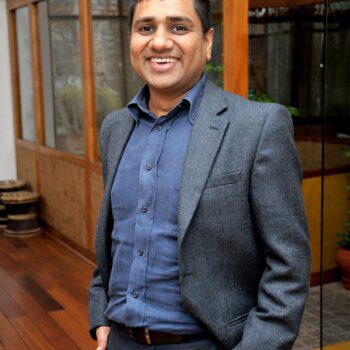Is your brand trying hard to tell people what they want to hear? Or are you speaking the truth as it resonates with your brand’s core reason for being?Quick Links
- Market research isn’t always the best idea
- No-one likes a subservient and slimy eye-servant
- Investing in the wrong audience is rather stupid
- Knowing your brand first, knowing your audience second
Market research isn’t always the best idea
Marketing speak about “target audience this” and “target audience that” often rubs me the wrong way. Knowing your audience seems intuitively important and whenever you hear a marketing guru talk about its importance, everyone just nods their heads in unison agreement.
Investing in audience research is rarely questioned and by default met with guttural noises of uninhibited support — and the occasional slow clap, even. You can never get fired for assigning a hefty budget to market research, right?
Well, obviously, your favourite digital strategy- and public relations blogger1 is here to make the case for knowing your brand instead.
No-one likes a subservient and slimy eye-servant
Think about it for a second: Are you able to tell when someone is just saying whatever you want to hear? While it can be comforting to hear that your ass looks fine in those jeans, when it comes to corporate communication, we appreciate brands speaking with authenticity, authority, and integrity. It’s better if brands speak their truth in their own voice; then we’ll decide what brands to align ourselves with.
It’s painful to see so many brands invest heavily first in getting to know a specific target audience and then trying to speak with them in a meaningful way. Apart from being a colossal waste of money, fakeness inevitably sounds… fake.
If you must pay numerous “hip” agencies stupendous recurring fees to sound youthful, your target audience will smell such “fakeness” from a mile away. If your brand is dependant on a certain demographic, but are unable to speak with them easily, then it isn’t a problem with communication. It’s a problem with the corporate culture.
Investing in the wrong audience is rather stupid
If you didn’t know this already: It’s entirely possible for a brand to have the wrong customer base. This is true for social media as well; many brands aren’t able to get the traction they think that they deserve because they, sometimes over a long period of time, have acquired the wrong type of followers.
Whatever you learn from researching such an audience, any subsequent communication strategy will only amplify the problems. The more successful the strategy, the worse the outcomes.
What if you would learn what your brand wants to say and how to say this in a way that is honest and rings true to what the company is all about — without relying all too much on market research. Hence, knowing your brand is more valuable. With this somewhat contrarian approach, the brand will attract the an audience who’s basing their loyalties on the brand’s true identity.
Knowing your brand first, knowing your audience second
Steve Jobs was many things and amongst his many legacies is a wealth of bite-sized business wisdom:
“Some people say give the customers what they want, but that’s not my approach. Our job is to figure out what they’re going to want before they do. I think Henry Ford once said, ‘If I’d ask customers what they wanted, they would’ve told me a faster horse.’ People don’t know what they want until you show it to them. That’s why I never rely on market research. Our task is to read things that are not yet on the page.”
Now, I’m not using this quote to drive home the point that no user research is ever needed. User research is valuable. It’s important to continuously put yourself in your customer’s shoes. What I’m saying, and what I think that Jobs is saying, is that market research is a tool best used by companies who already understand what their vision and purpose is.
Know your brand first. Then get to know the clientele you attract.
About the Author
This article was written by Jerry Silfwer, an awarded freelance consultant specialising in digital strategy and public relations. Based in Stockholm, Sweden. See more.





























